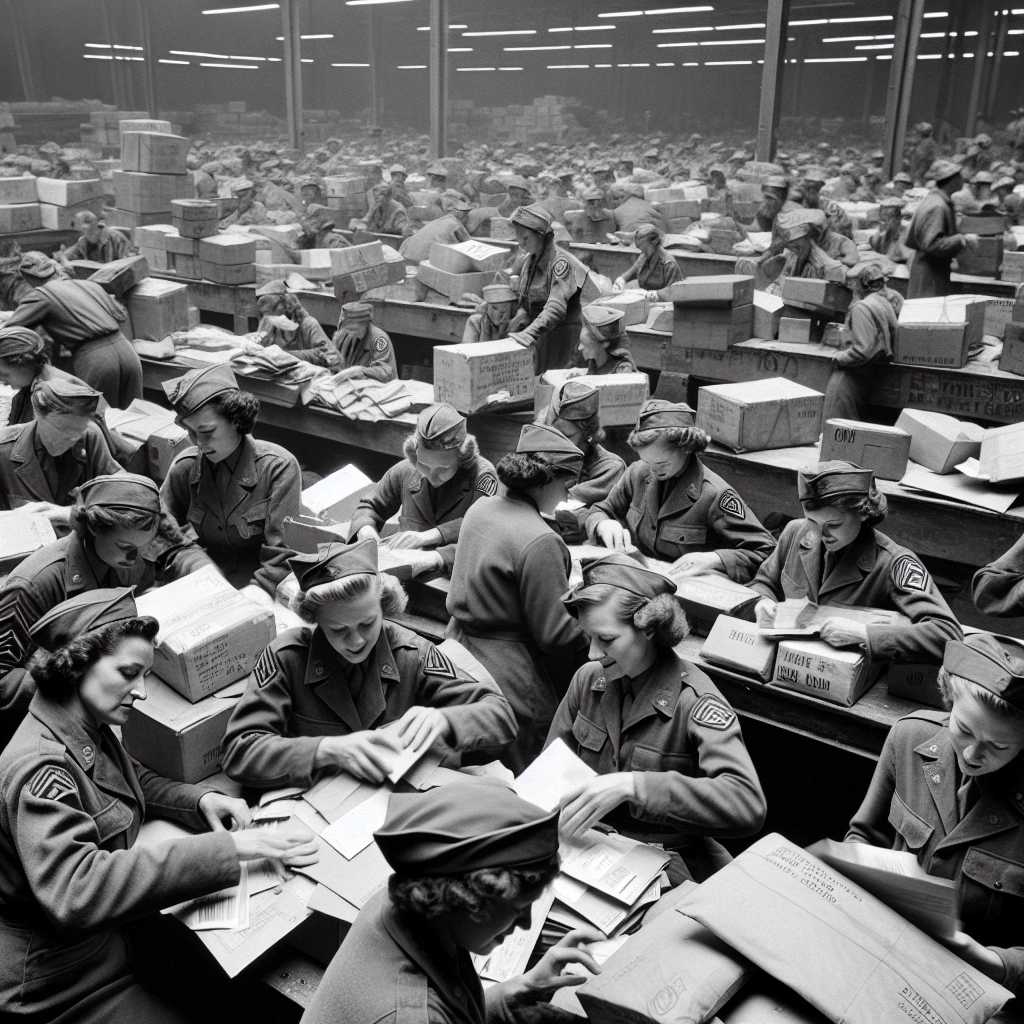The Pioneering Spirit of the Six Triple Eight: A Tribute to the 6888th Central Postal Directory Battalion
The story of the 6888th Central Postal Directory Battalion, also known as the Six Triple Eight, is an inspirational tale of courage, dedication, and overcoming adversity. This all-female, African American unit served with distinction during World War II and played a crucial role in boosting the morale of U.S. troops. They faced the twin challenges of race and gender discrimination, yet through resilience and hard work, they left an indelible mark on military history.
Breaking Barriers: The Formation of the Six Triple Eight
The 6888th Central Postal Directory Battalion was formed during World War II in response to a significant backlog of mail in the European theater that affected soldiers’ morale. The U.S. Army recognized the need for an efficient and reliable postal service and decided to establish an all-female battalion. Making history, the Six Triple Eight became the only African American Women’s Army Corps (WAC) unit to serve overseas.
Spearheaded by Major Charity Adams Earley, the battalion was composed of approximately 855 women, who were not just clerks but also chefs, mechanics, drivers, and officers. Before their deployment, these women underwent rigorous training at Fort Oglethorpe in Georgia and were later stationed in Birmingham, England, faced with a massive logistical challenge.
Mission Overseas: The Journey and Stationing in Europe
Upon landing in England in February 1945, the Six Triple Eight was tasked with clearing out years of undelivered mail to U.S. service members. Warehouses in Birmingham were crammed with parcels and letters, some stacked to the ceilings; if it were not handled efficiently, critical communications with family or official orders could be delayed indefinitely.
“Don’t take it!” was their unofficial motto—a testament to their commitment to refusing the status quo and ensuring no piece of mail was left undelivered. These resolute women inventoried and redirected mail at an astonishing pace. Within three months, they cleared a six-month backlog in Birmingham before moving on to Rouen and Paris in France to tackle similar situations.
On the Front Lines of Progress: Combatting Racism and Sexism
The Six Triple Eight battled sexism and racism at every turn during their service period. Facing doubts about their capabilities from some male soldiers and officers, they proved their detractors wrong through their exceptional performance. Racial prejudices at that time meant that black units were often relegated to menial tasks; however, this inspired them to excel even more.
In their private time, they explored European cities and engaged with local communities—a soft diplomacy that not only changed perceptions about African American women but also strengthened US ties with European civilians.
Legacy of Excellence: The Aftermath of their Service
The contributions of the Six Triple Eight to the war did not receive recognition commensurate with their achievements for many decades. Belatedly, the spotlight began to shine on these exemplary women when in 2009 President Barack Obama signed into law legislation awarding them with the prestigious Congressional Gold Medal—one of the highest civilian awards in the United States.
The story of the 6888th Central Postal Directory Battalion is not just one of wartime heroism but also about historical justice and acknowledging the often overlooked contributions of black women in America’s military history.
Notes
Image Description A black and white historical image showing members of the Six Triple Eight Central Postal Directory Battalion working diligently amidst stacks of packages and letters at a makeshift sorting facility during World War II. Uniformed women are seen hand-sorting mail and categorizing them into postal bins marked by various military unit numbers and APO addresses.
OYvdq
